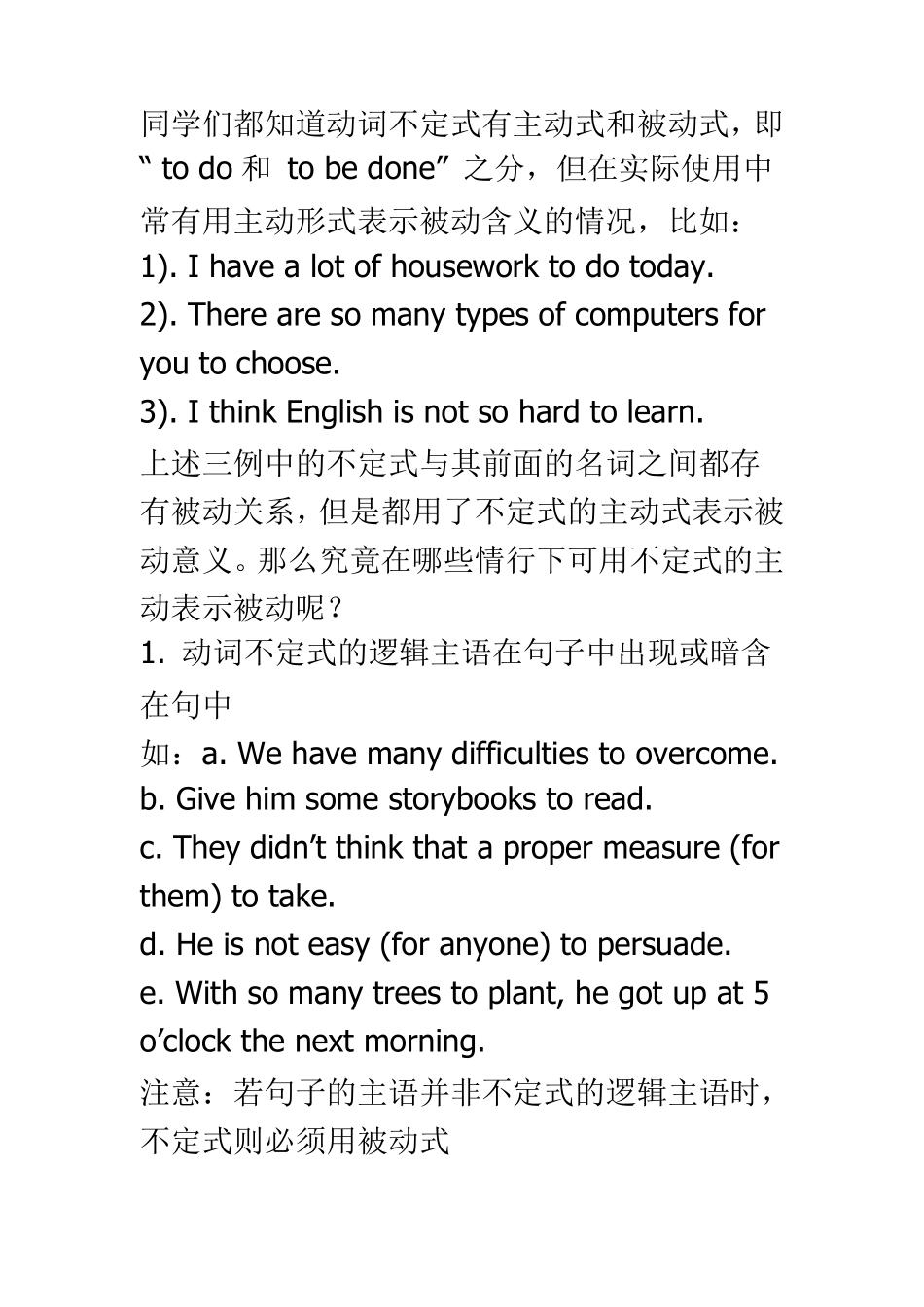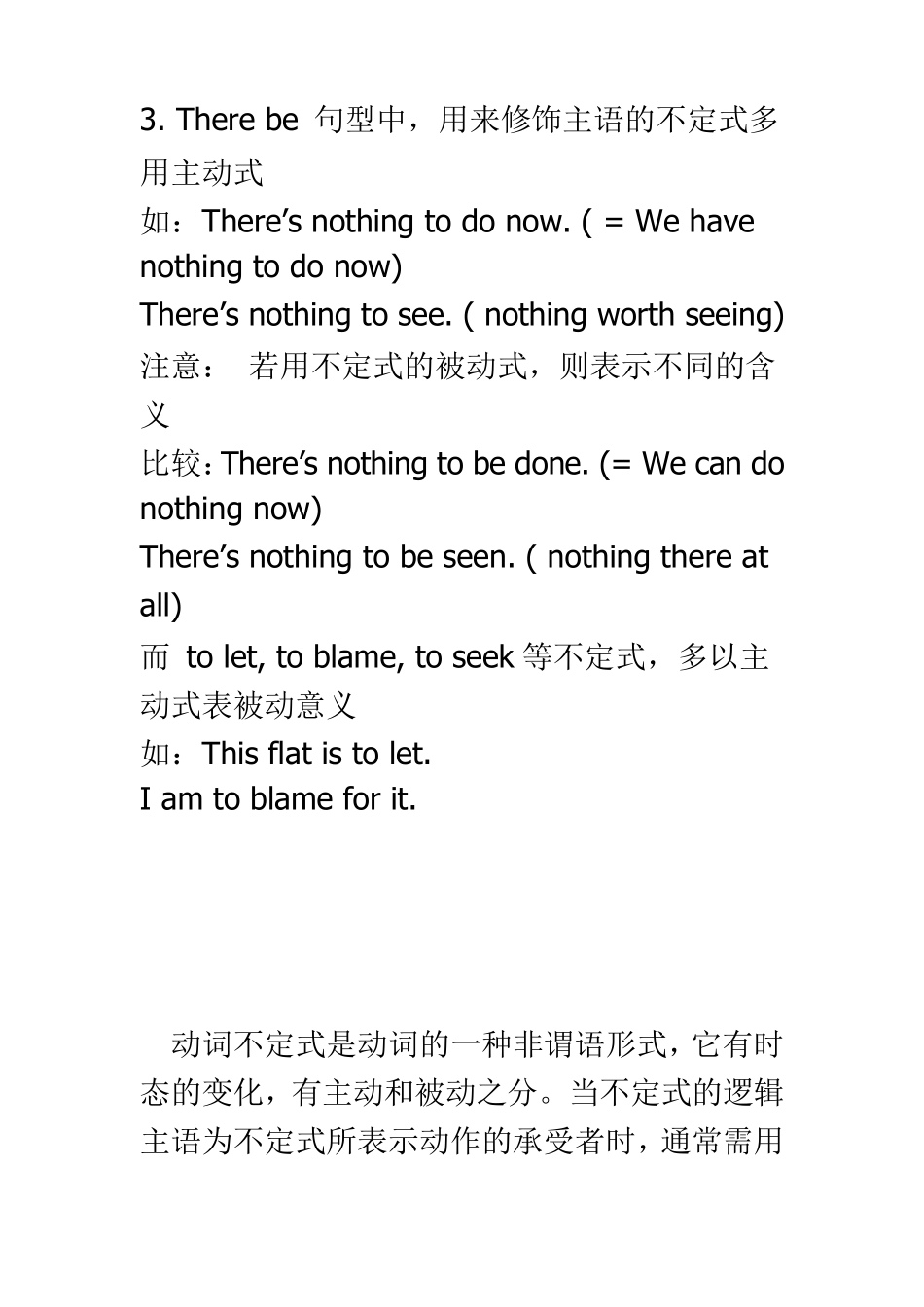同学们都知道动词不定式有主动式和被动式,即 “ to do 和 to be done” 之分,但在实际使用中常有用主动形式表示被动含义的情况,比如: 1). I have a lot of housework to do today. 2). There are so many types of computers for you to choose. 3). I think English is not so hard to learn. 上述三例中的不定式与其前面的名词之间都存有被动关系,但是都用了不定式的主动式表示被动意义。那么究竟在哪些情行下可用不定式的主动表示被动呢? 1. 动词不定式的逻辑主语在句子中出现或暗含在句中 如:a. We have many difficulties to overcome. b. Give him some storybooks to read. c. They didn’t think that a proper measure (for them) to take. d. He is not easy (for anyone) to persuade. e. With so many trees to plant, he got up at 5 o’clock the next morning. 注意:若句子的主语并非不定式的逻辑主语时,不定式则必须用被动式 如:a. I’ll go to New York. Have you anything to be taken to your wife there? b. I have no letter to be typed. Thank you all the same. c. “Have you any clothes to be washed, sir?” asked the maid. a 句中take 的逻辑主语为I 而不是you ; b 句中type 的逻辑主语是you 而不是I;c 句中wash的逻辑主语是 maid 而不是I。 2. 在 Sth. / Sb. + adj. + to do 结构中, 若形容词为:easy, difficult, hard, heavy, light, good, nice, pleasant, comfortable, fit, dangerous, interesting, important 等等 如:The river is dangerous to swim in. The box is too heavy for the boy to carry. The room is comfortable to live in. The problem is difficult to work out. 当上述形容词在句中作宾语补足语,后接不定式时,不定式也用主动表被动 如: I found him easy to get along with. They don’t think the game interesting to play. 3. There be 句型中,用来修饰主语的不定式多用主动式 如:There’s nothing to do now. ( = We have nothing to do now) There’s nothing to see. ( nothing worth seeing) 注...


